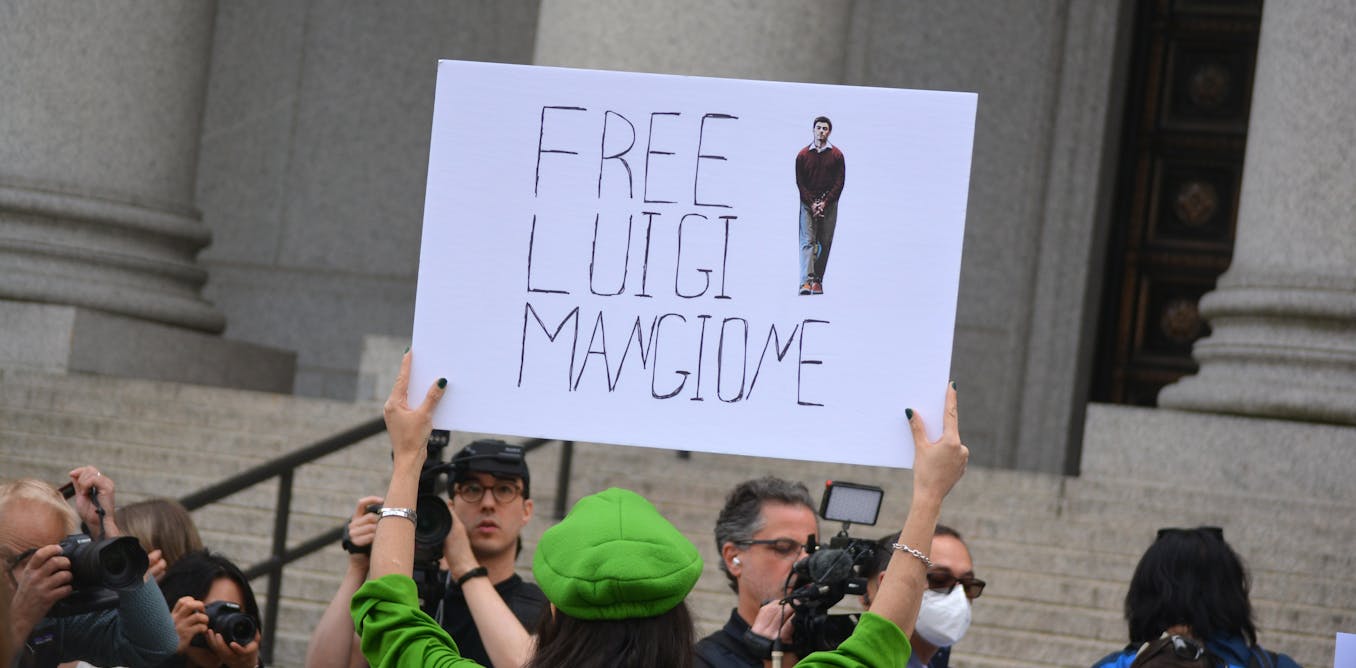Science
Workplace Burnout Linked to Rise in Violent Extremist Attitudes

The recent arrest of Luigi Mangione for the alleged murder of the CEO of UnitedHealthcare has sparked widespread public debate, particularly among younger demographics. On April 25, 2025, during his arraignment in Federal Court, a striking 41% of young adults expressed support for Mangione’s actions, raising questions about the societal factors that could lead individuals to endorse violent measures.
Research published in the special issue “Understanding Violent Extremism” of the APA Journal Psychology of Violence identifies workplace burnout as a significant contributor to these troubling attitudes. The study examines how chronic stress and exhaustion in professional environments can foster a climate where extremist ideologies gain traction.
Burnout and Its Impact on Attitudes
The study involved daily surveys from over 600 employees, tracking their levels of burnout, emotional states, and attitudes toward violent extremism. Findings revealed a concerning trend: on days when employees reported heightened feelings of burnout, they also showed increased sympathy for extremist ideas, including justifying violence against perceived injustices.
Negative emotions associated with burnout, such as fear, sadness, and guilt, appear to push some individuals toward radical ideologies as a means of coping or reclaiming a sense of purpose. This connection is explained through three psychological theories.
The first, General Strain Theory, posits that daily frustrations can lead to violent extremism by generating negative emotional responses. The second, the existential model of burnout, highlights how a lack of meaningful work can contribute to feelings of despair. Finally, Significance Quest Theory suggests that when individuals feel insignificant, they may turn to radical beliefs to restore meaning to their lives.
Understanding the Nuance of Radicalisation
Importantly, the study does not claim that all individuals experiencing burnout will engage in extremist violence. Instead, it highlights how burnout can subtly shift attitudes, normalizing acceptance of violence. This distinction is critical, as evidenced by the two-pyramids model that differentiates between the radicalization of opinion and the radicalization of action. While radicalization of opinion alone may not lead to direct violence, it can threaten societal cohesion and democratic values.
The prevalence of workplace burnout is alarming, affecting approximately 75% of employees. While most individuals will not resort to violence, a society that grows increasingly tolerant of extremist attitudes risks normalizing destructive behaviors.
The Role of Organisational Support
The research underscores the protective role of perceived organizational support. Employees who feel valued and cared for by their organizations are less likely to adopt extremist ideologies, even when facing burnout symptoms. However, for support to be effective, it must be provided before negative emotions become entrenched. Once employees reach a certain emotional threshold, additional support has limited power in preventing the escalation toward radical attitudes.
Employers play a crucial role in addressing burnout, not merely as a health initiative but as a strategy for maintaining workplace stability and societal harmony. Promoting fairness, transparency, and recognition in the workplace, alongside training managers to identify and respond to early signs of burnout, can help mitigate these risks.
Broader Implications
The implications of workplace burnout extend beyond individual businesses. As societal perceptions of injustice grow, particularly in contexts like the political ramifications surrounding Mangione’s case, the potential for extremist sympathies to emerge increases. Efforts to pursue the death penalty for Mangione, for instance, could deepen feelings of systemic unfairness and exacerbate radical views.
Burnout signals a deeper existential vulnerability rather than merely disengagement or fatigue. When workplaces neglect employee well-being, they do more than risk productivity; they create fertile ground for ideological radicalization.
As both workplaces and societies navigate rising extremist sentiments, understanding the psychological triggers linked to burnout becomes vital. Employees require support not only to enhance job performance but also to maintain a sense of meaning and connection in their lives. A burnt-out individual is likely to seek meaning in various places, including radical ideologies, which can have far-reaching consequences that extend beyond the office walls.
This research calls for immediate attention to workplace cultures and employee well-being, emphasizing the need for proactive measures to foster stability and prevent the normalization of extremist attitudes.
-

 Entertainment3 weeks ago
Entertainment3 weeks agoAimee Osbourne Joins Family for Emotional Tribute to Ozzy
-

 Politics4 weeks ago
Politics4 weeks agoDanny Healy-Rae Considers Complaint After Altercation with Garda
-

 World1 month ago
World1 month agoHawaii Commemorates 80 Years Since Hiroshima Bombing with Ceremony
-

 Top Stories1 month ago
Top Stories1 month agoFianna Fáil TDs Urgently Consider Maire Geoghegan-Quinn for Presidency
-

 Top Stories1 week ago
Top Stories1 week agoIreland Enjoys Summer Heat as Hurricane Erin Approaches Atlantic
-

 World1 month ago
World1 month agoGaza Aid Distribution Tragedy: 20 Killed Amid Ongoing Violence
-

 World1 month ago
World1 month agoCouple Convicted of Murdering Two-Year-Old Grandson in Wales
-

 Top Stories1 month ago
Top Stories1 month agoClashes Erupt Between Far-Right Groups and Migrants in Spain
-

 World1 month ago
World1 month agoAristocrat Constance Marten and Partner Convicted of Infant Murder
-

 Top Stories1 month ago
Top Stories1 month agoHistoric Dalkey Pub The Queens Reopens Under New Management
-

 World1 month ago
World1 month agoTrump Defends FBI Deputy Director Amid Epstein Files Controversy
-

 Politics1 month ago
Politics1 month agoTragic Crowd Surge at Gaza Aid Center Claims 20 Lives









